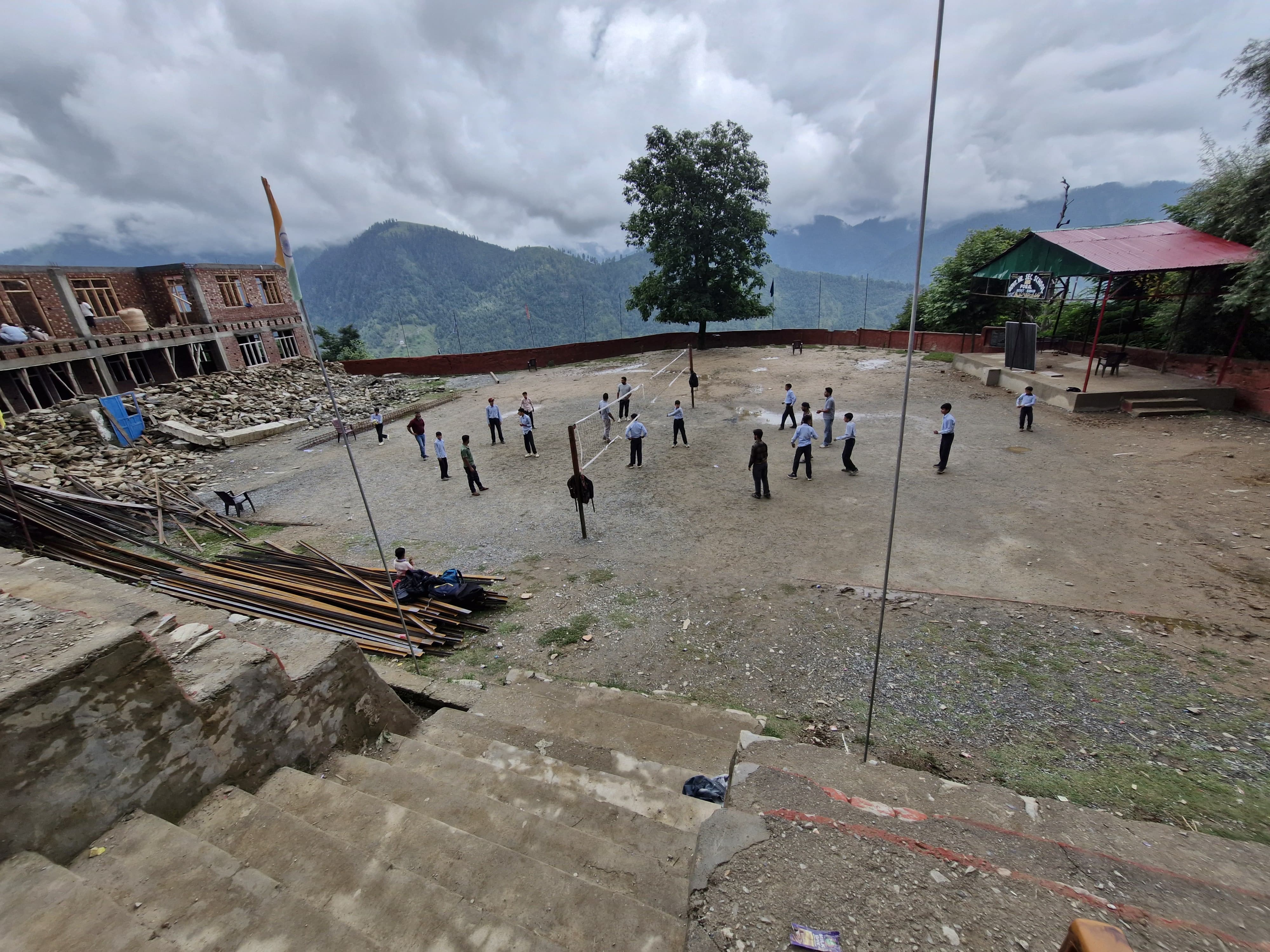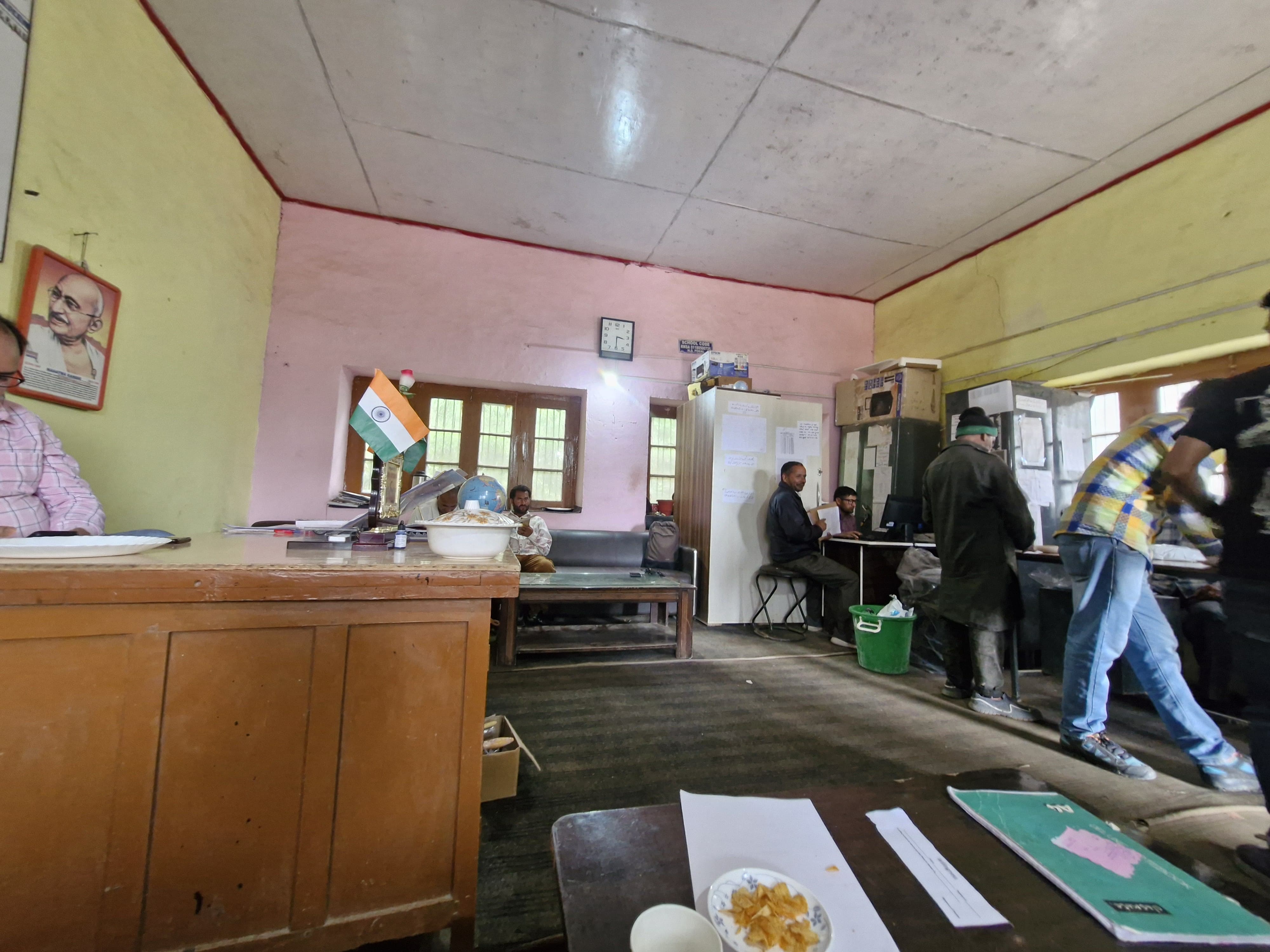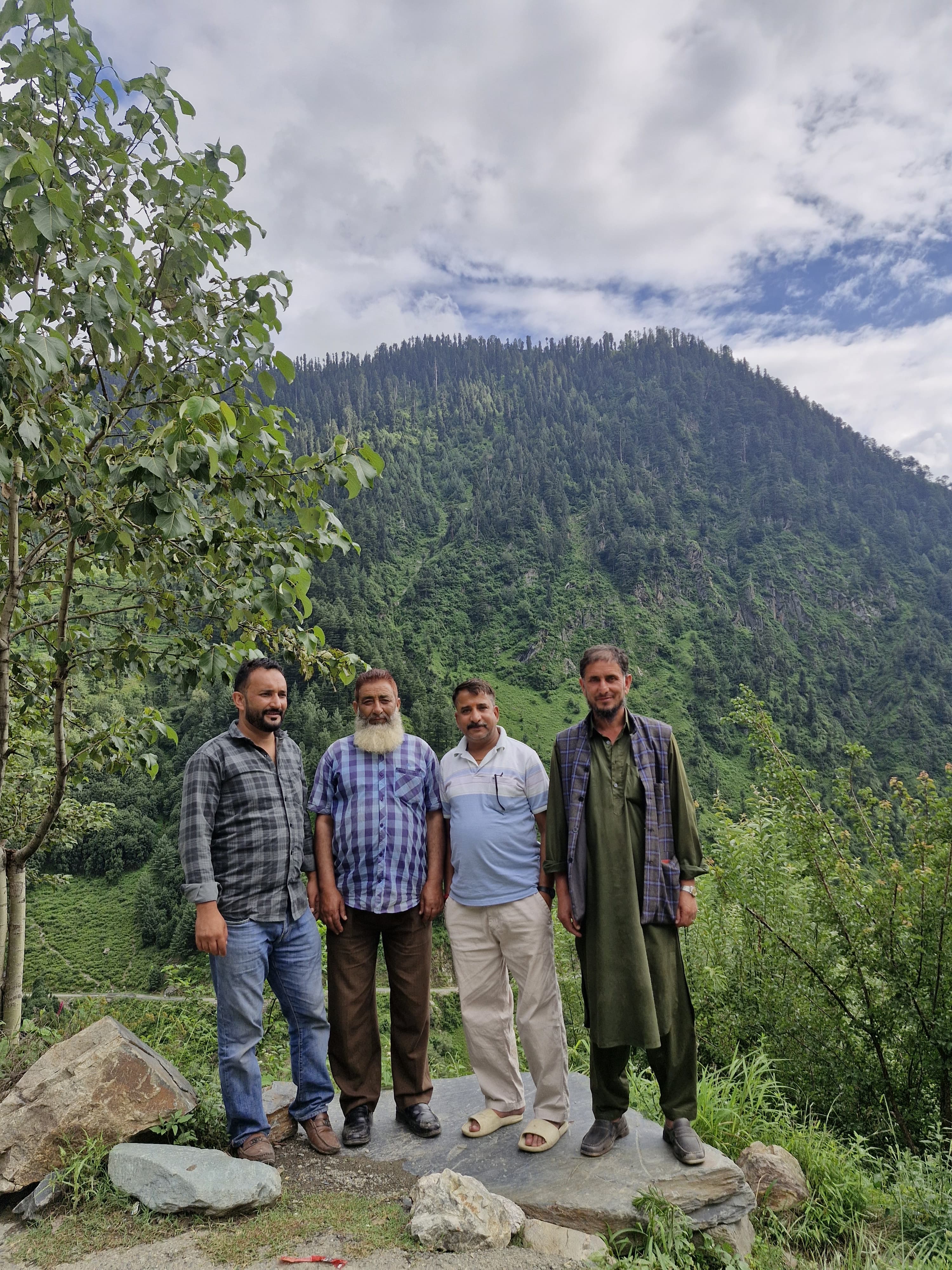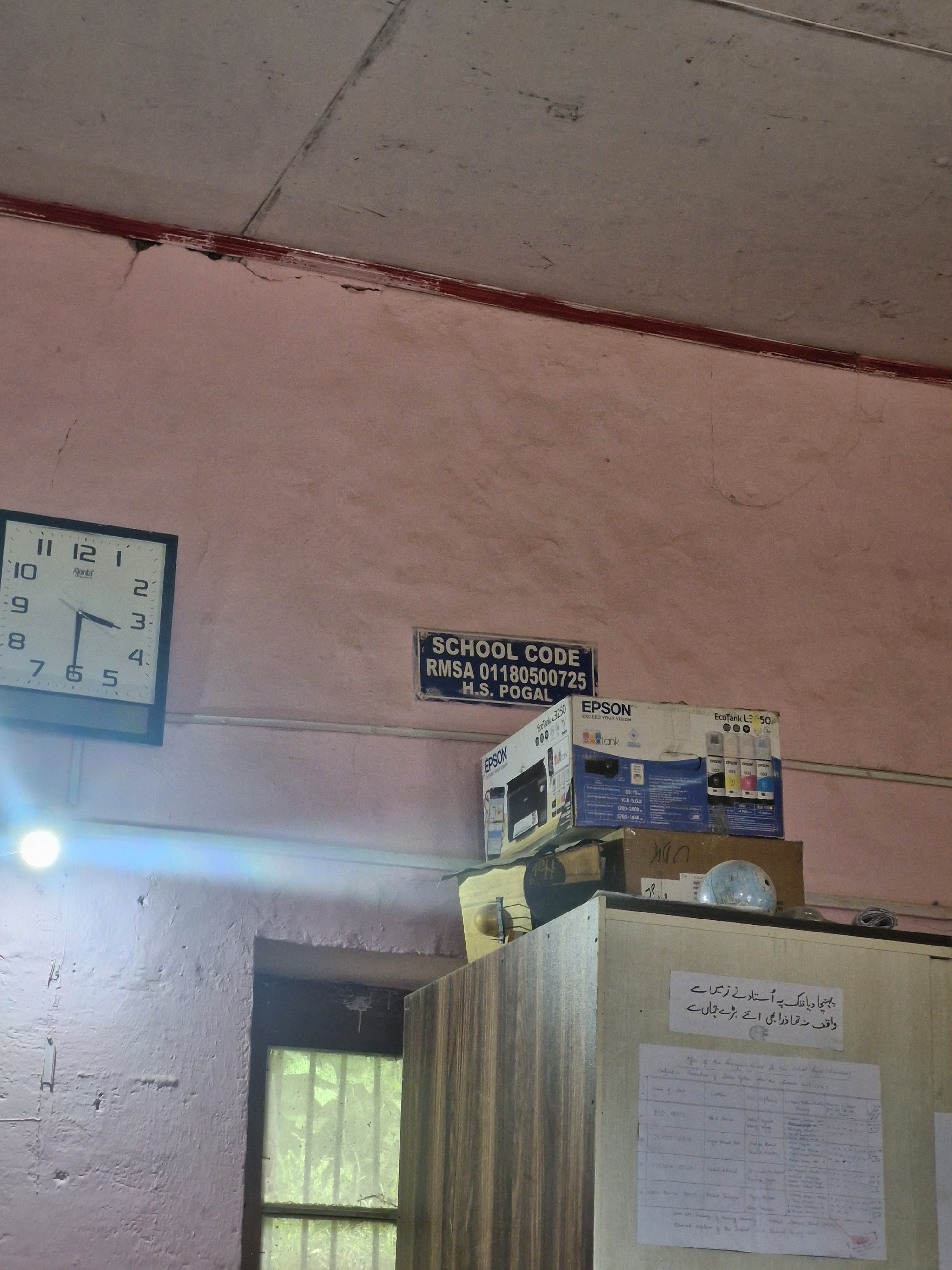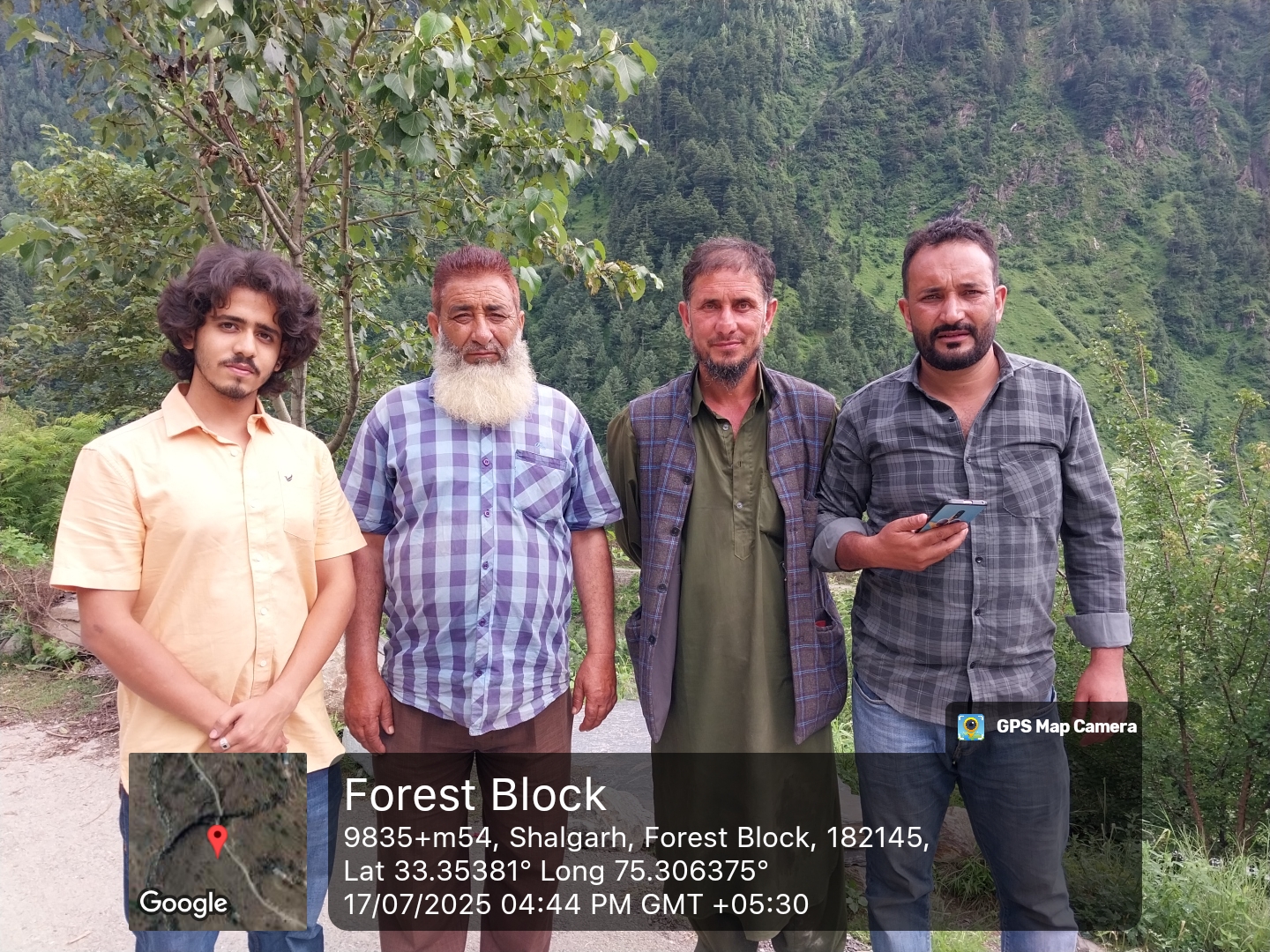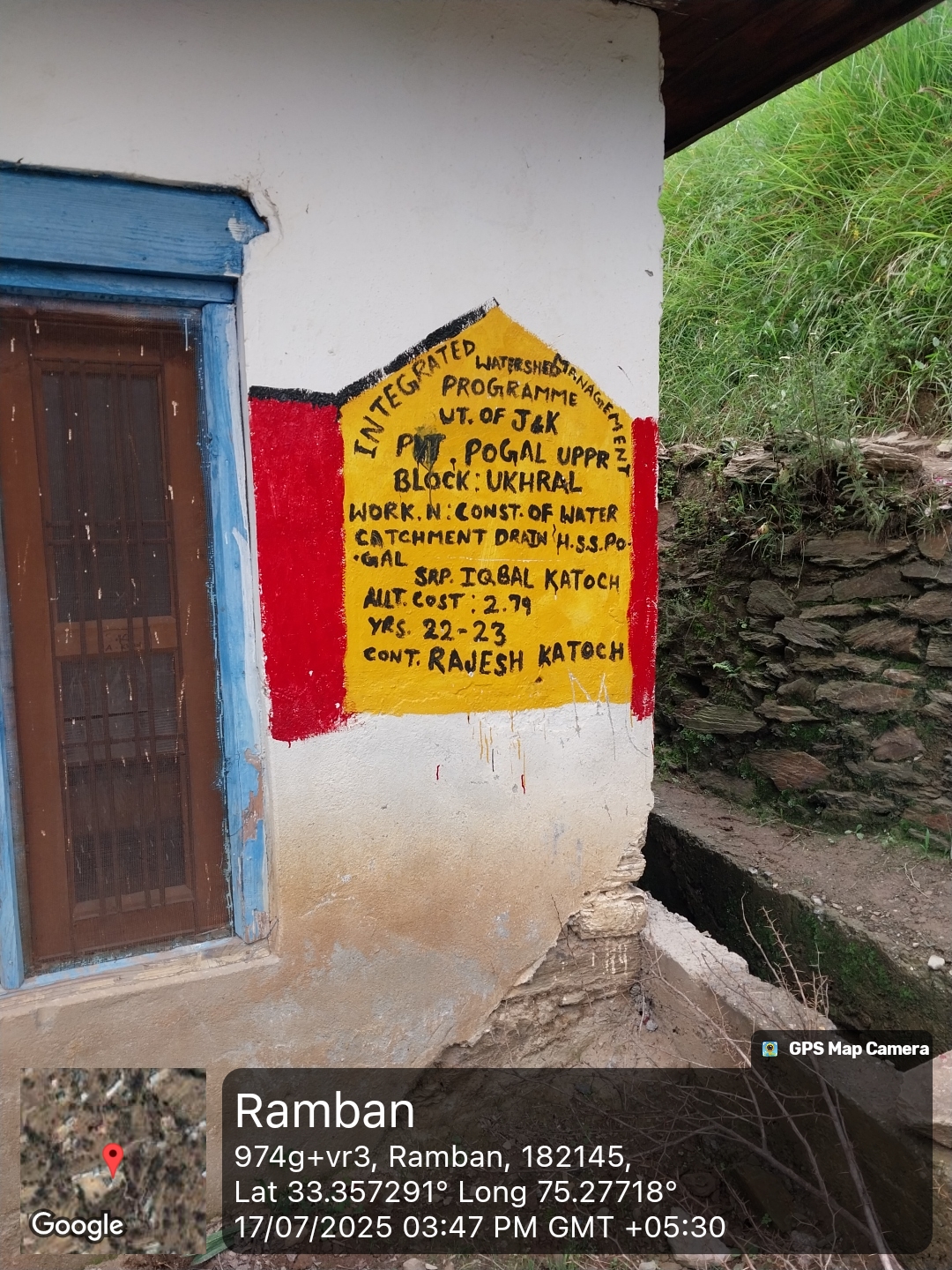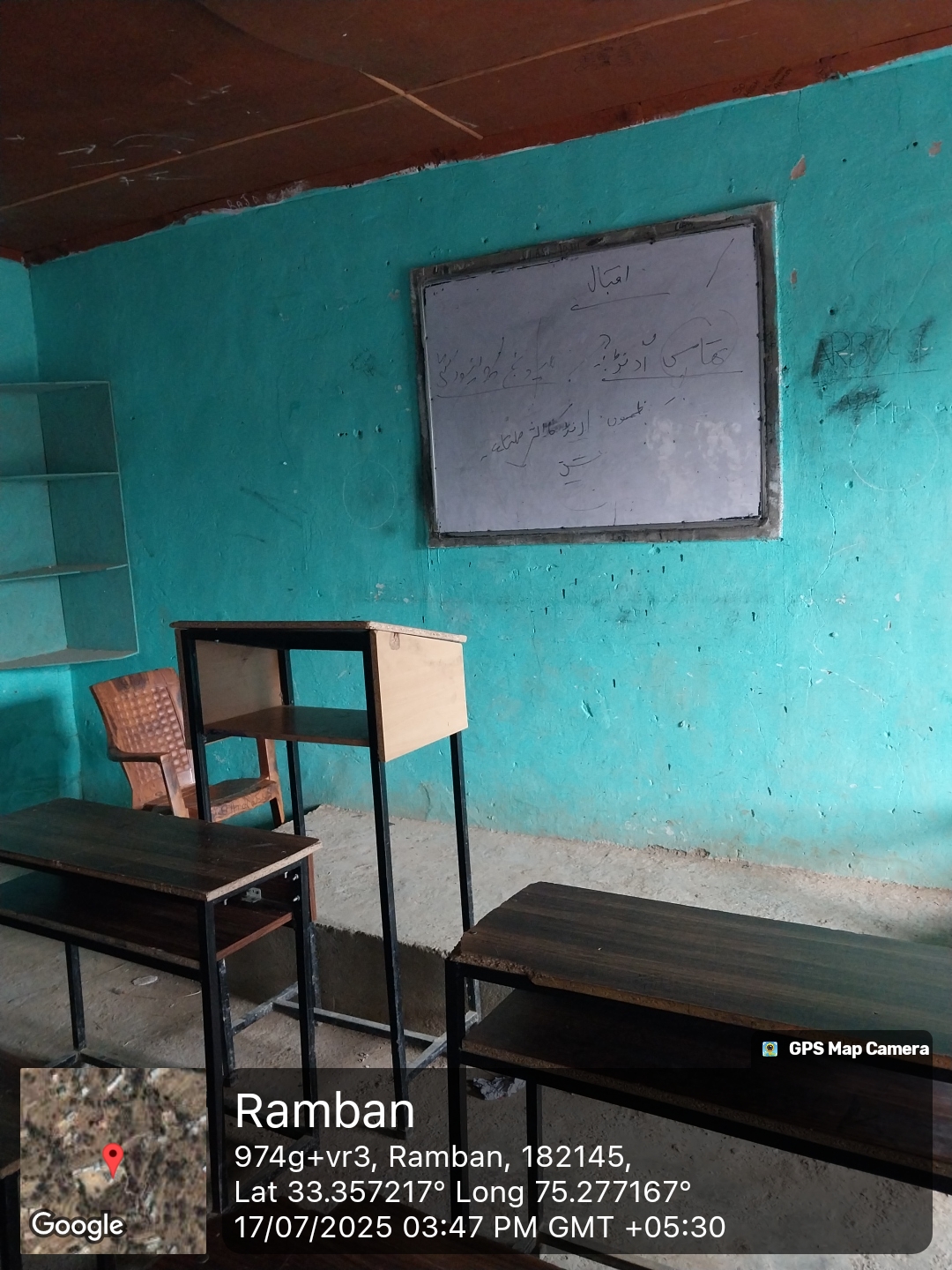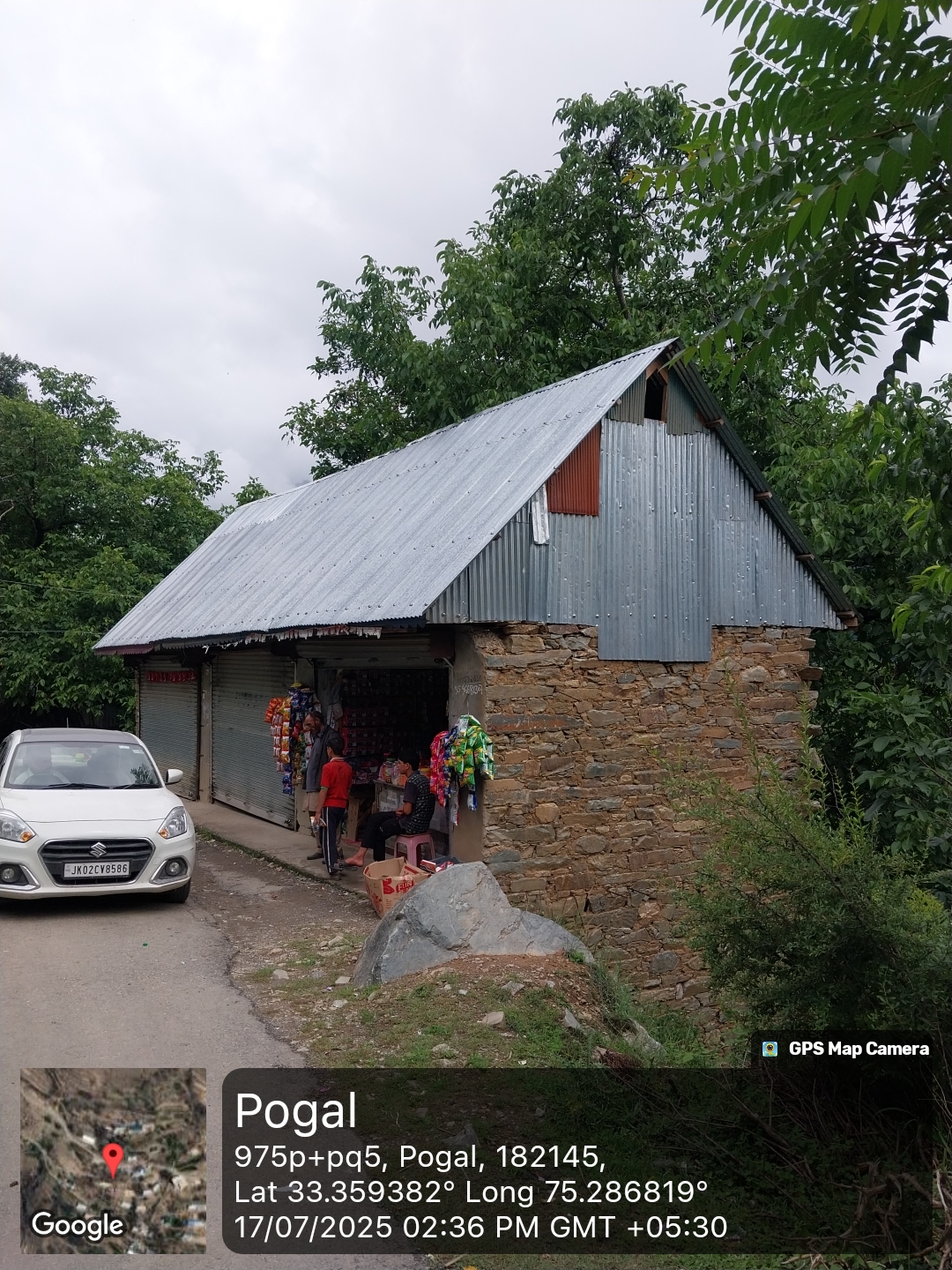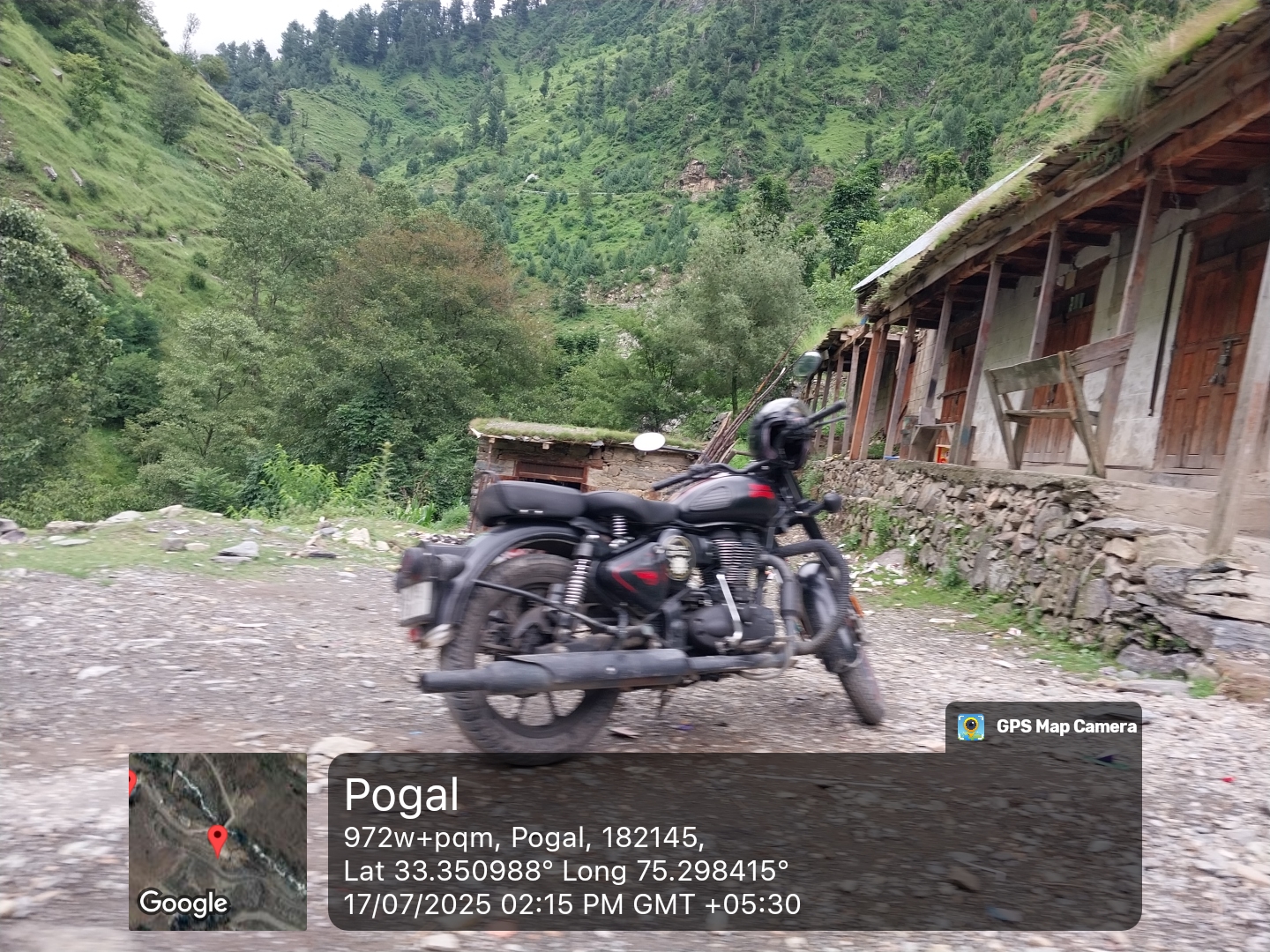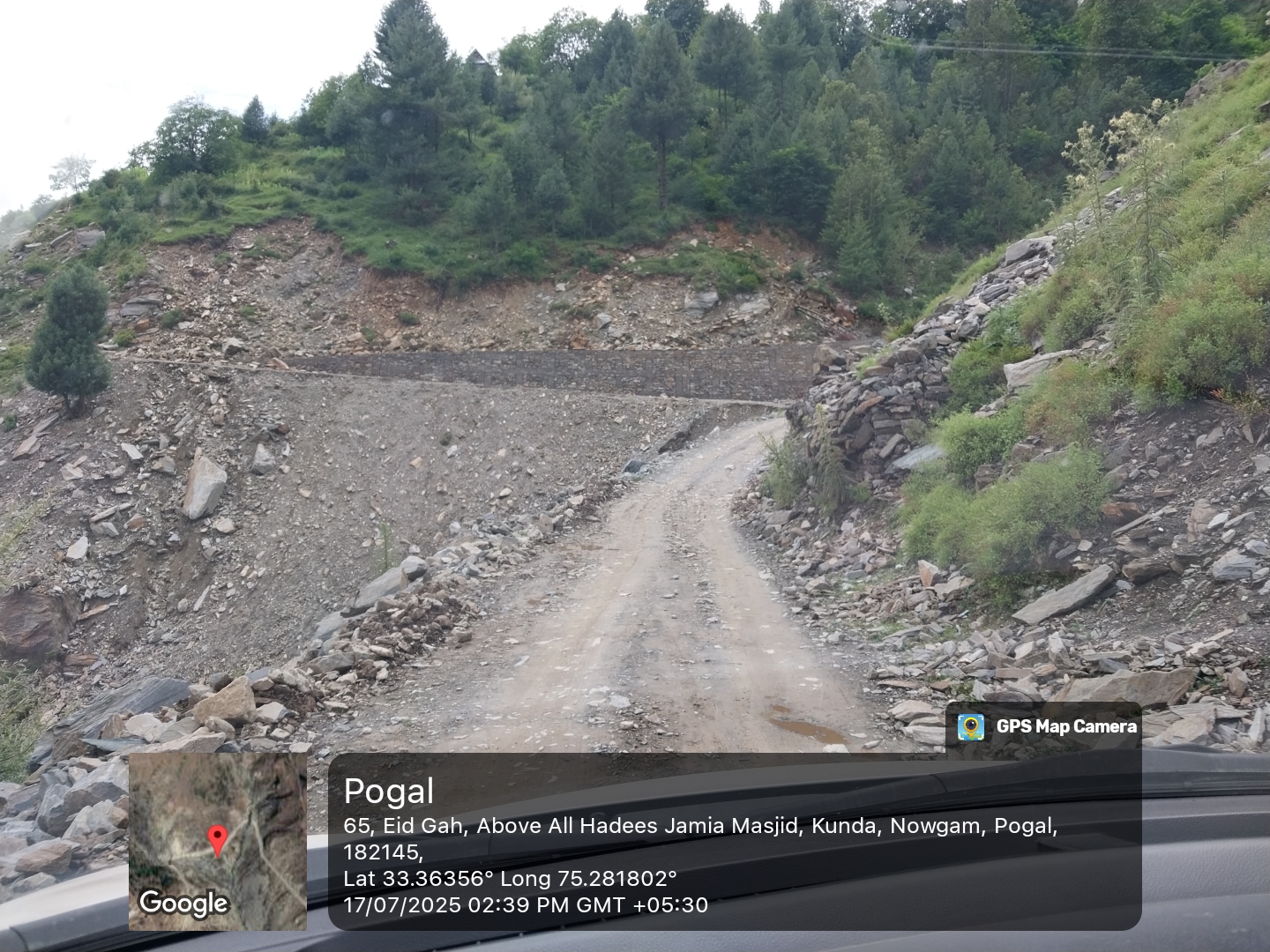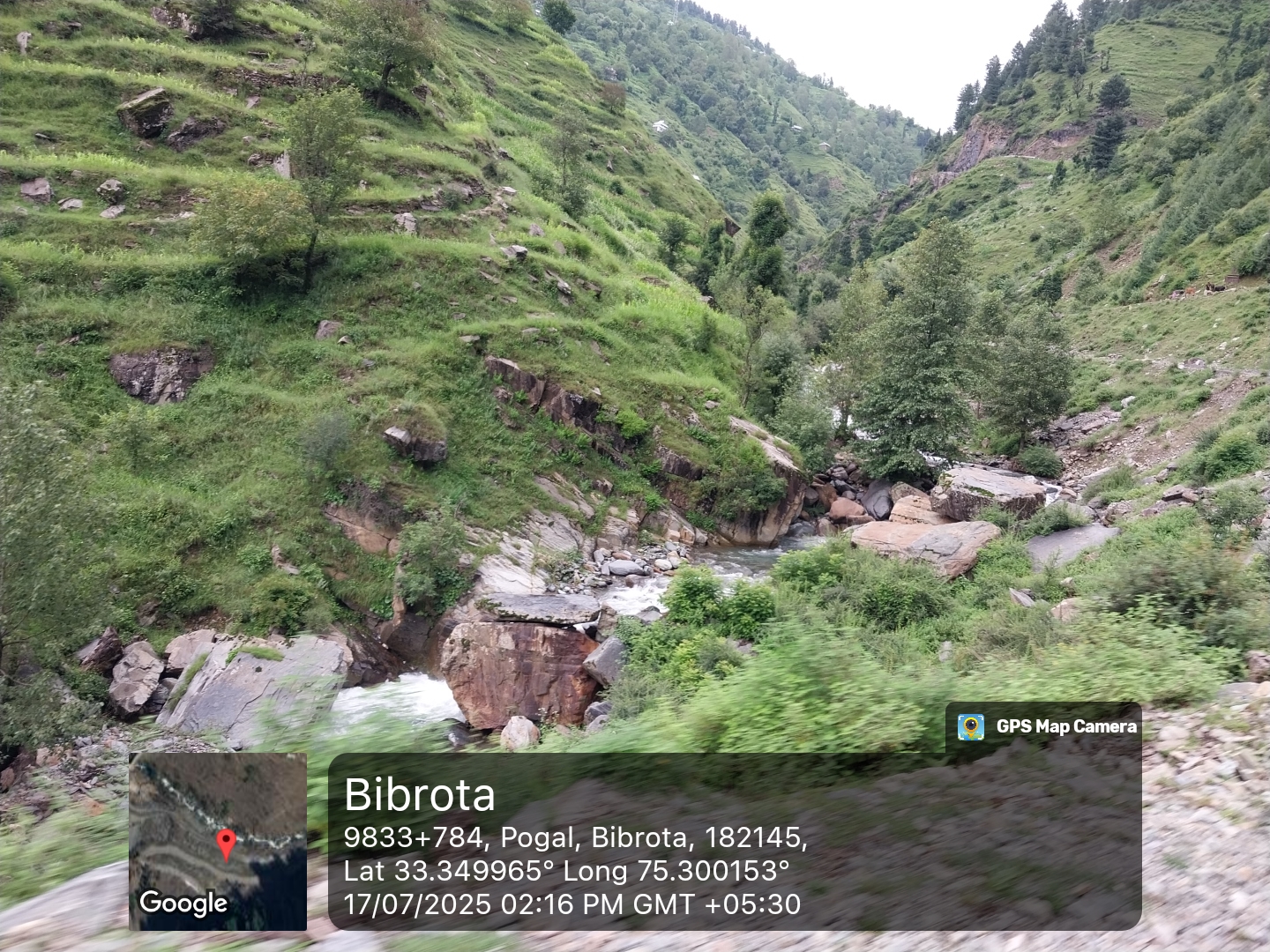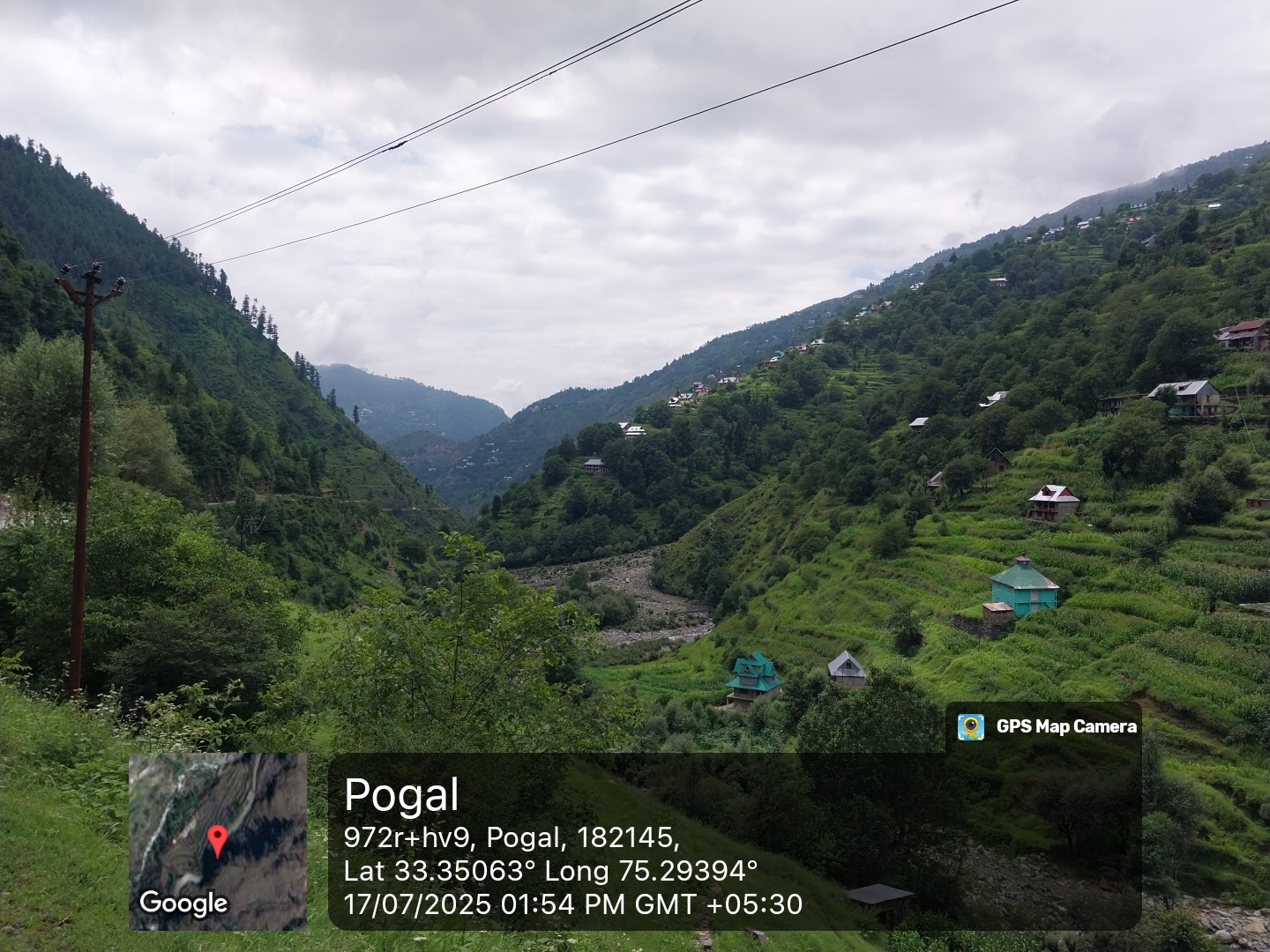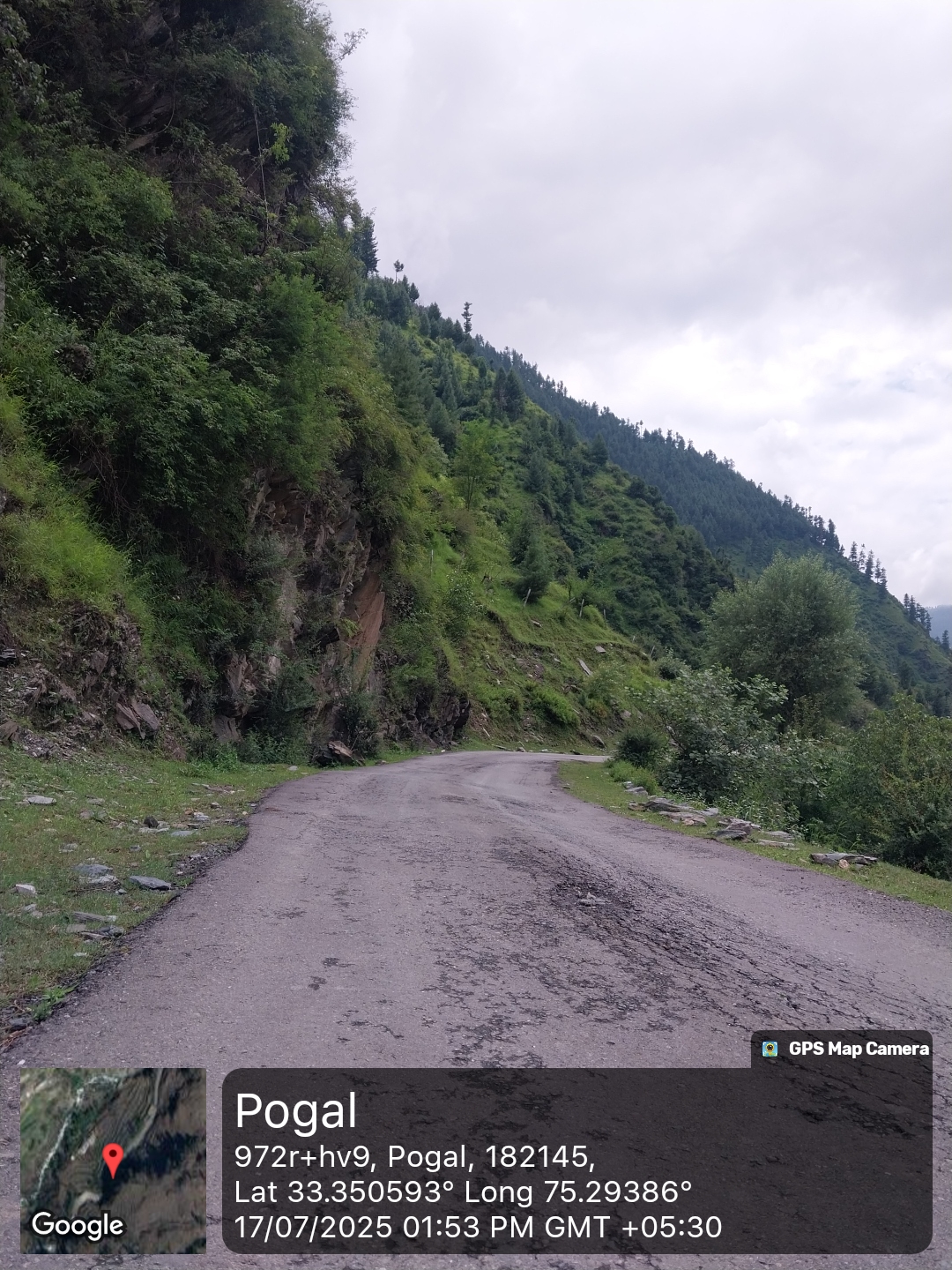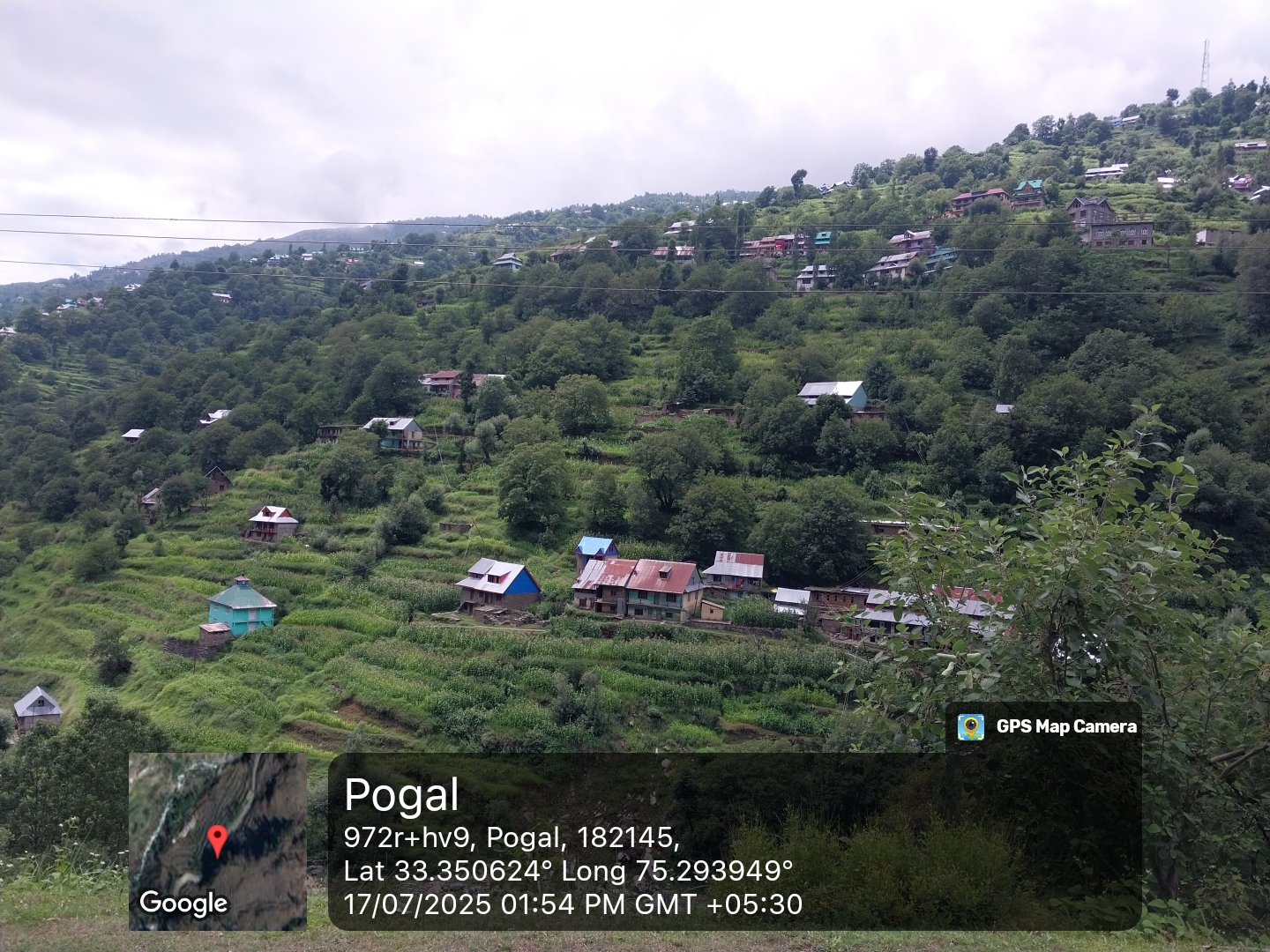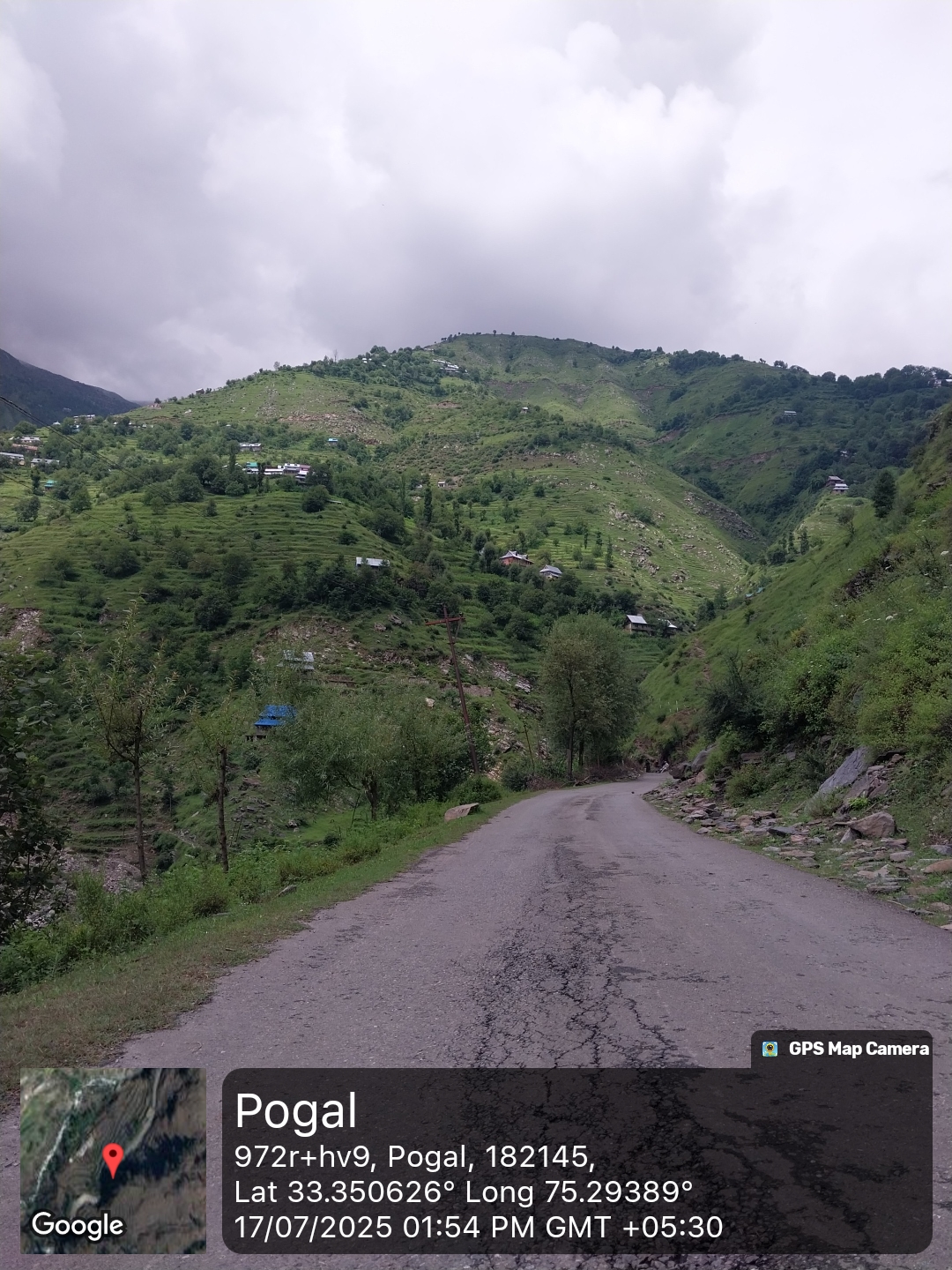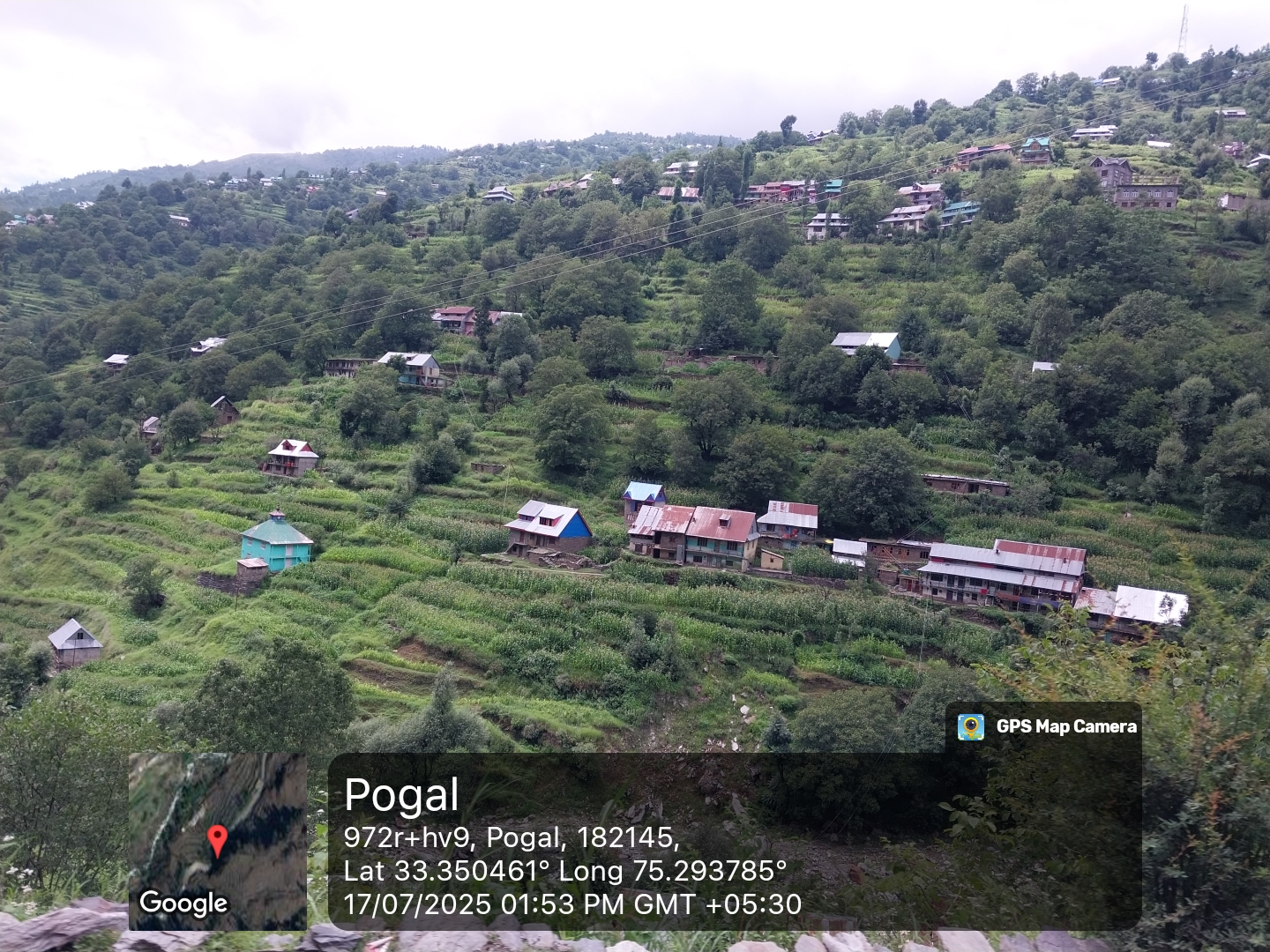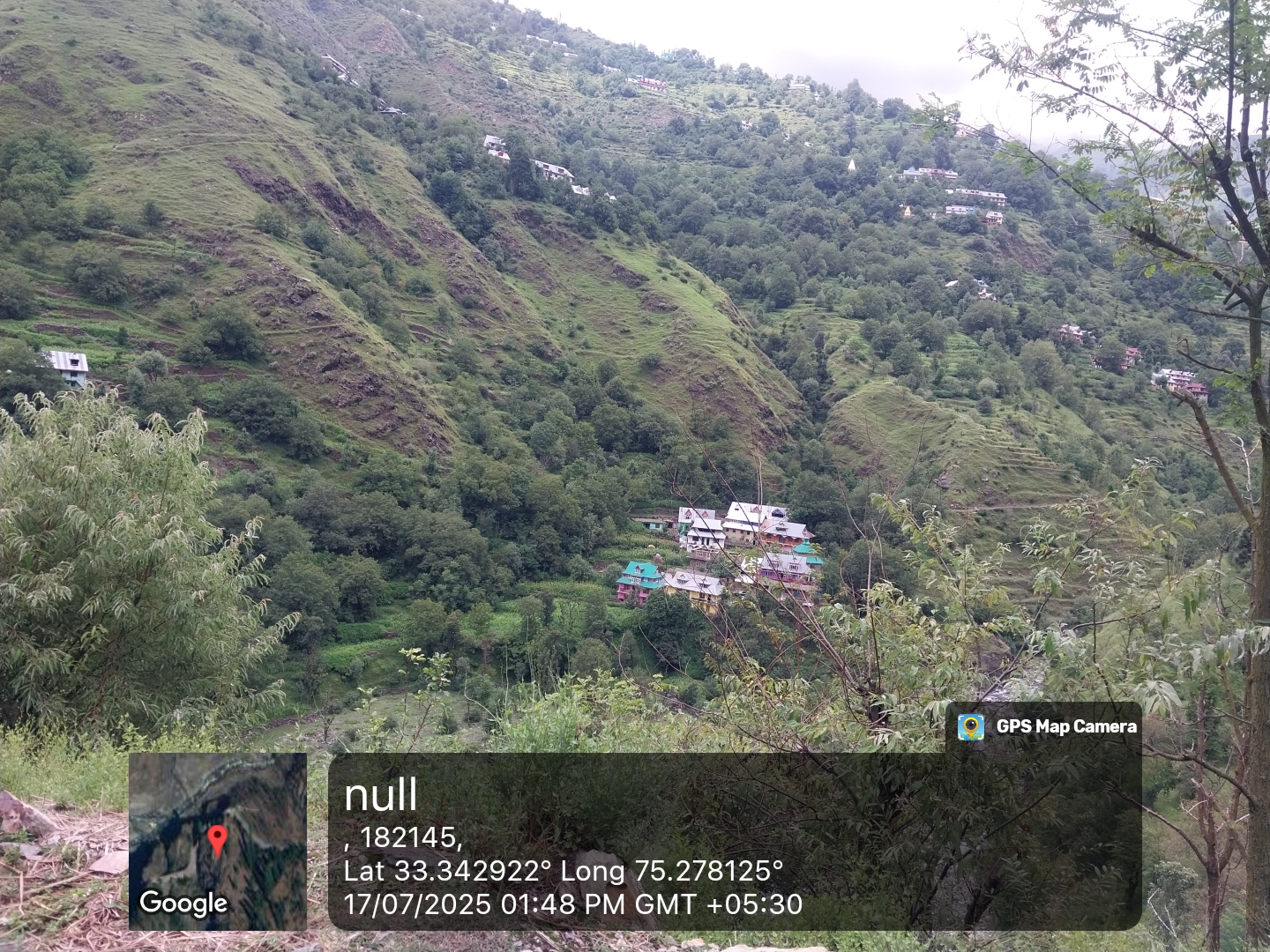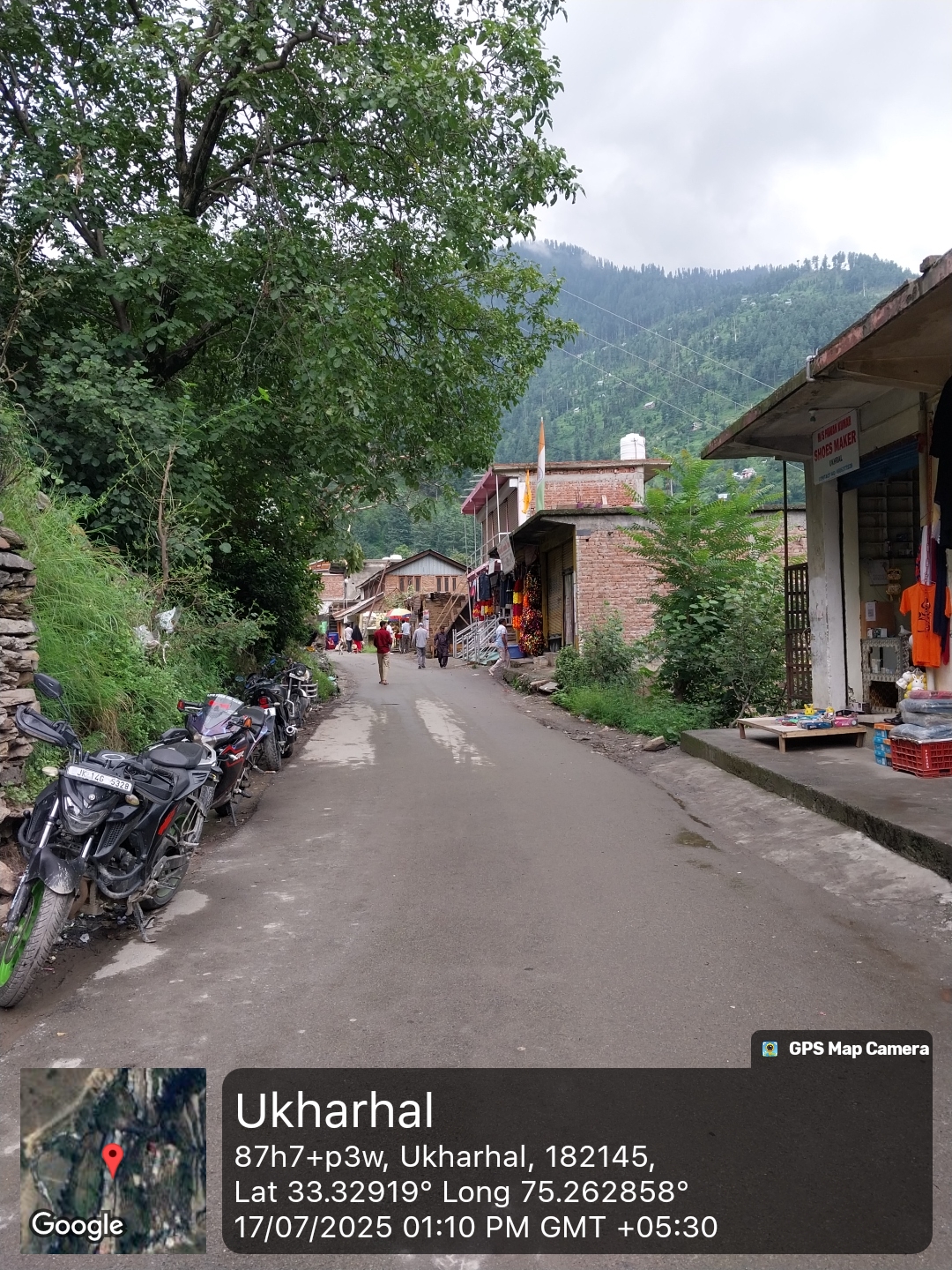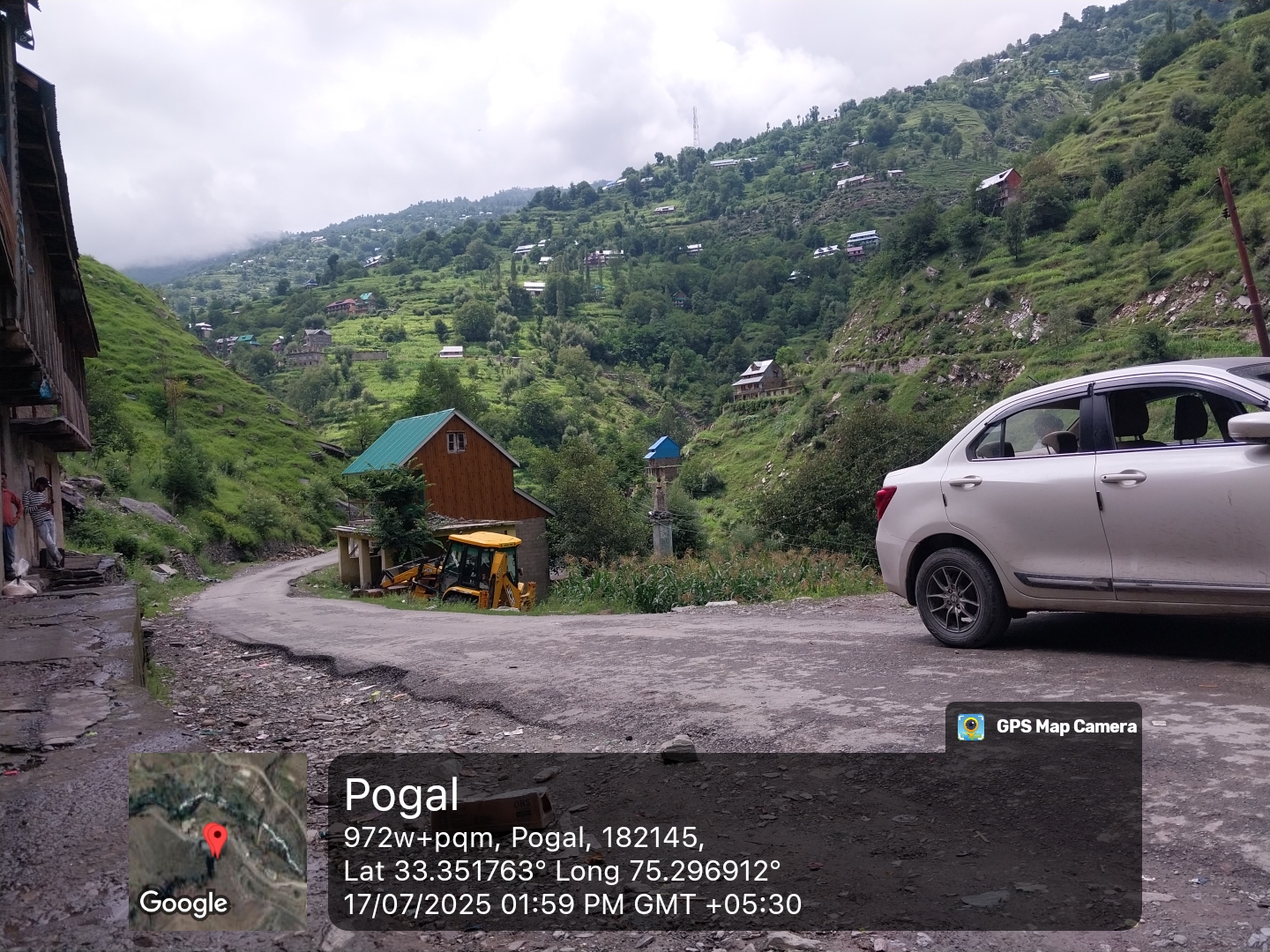Description
Pogal Paristan — Village Profile
Overview
Pogal Paristan is a remote Himalayan valley and tehsil in the Ramban district of Jammu and Kashmir. Known as the “Land of Fairies”, its name comes from the Persian word pari (fairy), inspired by the valley’s ethereal meadows, rivers, and folklore. Once a dense forest, the area was gradually settled by Rajput clans such as the Bhutyals, Balis, Jamwals, and Katochs, who cleared land and built communities. Even today, Pogal Paristan blends untouched natural beauty with centuries-old traditions, making it a rare cultural landscape of the Himalayas.
Geography & Location
-
Coordinates: Situated in the Pir Panjal range, Ramban district, J&K.
-
Access:
-
By Road: Connected via NH-44 (Jammu–Srinagar Highway), then Magarkote → Ukhral (tehsil HQ) → Pogal Paristan.
-
By Rail: Nearest station is Banihal (23 km).
-
By Air: Srinagar Airport (130 km), Jammu Airport (150 km).
-
-
Within Village: Mostly walkable, with small vehicles and horse riding in meadows.
-
Digital Access: Mobile networks available, internet improving but patchy in remote corners.
Demography
-
Census 2011: Pogal village had 11,526 residents (5,958 men, 5,568 women) across 2,197 households.
-
Literacy rate: 61.27%.
-
Sex ratio: 935 women per 1,000 men.
-
Projected 2025 population: ~12,900.
-
Since achieving tehsil status in 2014, Pogal Paristan has improved infrastructure and education while preserving its agrarian lifestyle.
Landscape, Flora & Fauna
-
Flora: Deodar, pine, oak, walnut, apple, apricot, plum, fig, wild berries, alpine flowers, medicinal herbs.
-
Fauna: Musk deer, Himalayan black bear, foxes, pheasants, monal, partridges, amphibians, freshwater fish.
-
Natural Highlights: Meadows of Sargali, Sunaseri, Gugli Dhar; Malinsar alpine pond; rivers Pogal (Sundari) and Paristan Nallah.
-
Trails & Peaks: Yamul Top, Hansraj Peak, Taparwan ridge, Sharvadhar temple route.
Culture & Lifestyle
-
Economy: Subsistence farming (maize, rajma, rice, vegetables), orchards (walnut, apple, plum), livestock, weaving, carpentry.
-
Cuisine: Maize bread, rajma-chawal, fresh vegetables, walnuts/apricots, herbal teas, dairy-based dishes.
-
Architecture: Wooden and stone houses, multi-story designs adapted for snow/earthquakes.
-
Folklore: Legends of fairies, saints, and hidden treasures passed through oral traditions.
Festivals & Traditions
-
Chandi Mata Yatra: Annual June pilgrimage at Sharvadhar temple.
-
Pogal Sargali Cultural Bonanza: Folk songs, horse races, kabaddi, crafts, camping.
-
Pogal Paristan Festival: Promotes trekking, handicrafts, and cuisine.
-
Everyday Traditions: Wedding songs, harvest fairs, seasonal rituals.
Education & Community Development
-
Schools: Govt High School Pogal, Govt HSS Pogal, primary schools.
-
Challenges: Higher studies require travel to Ukhral, Ramban, or Jammu.
-
Vocational Learning: Tailoring, computers, food processing, electrical wiring, entrepreneurship (under schemes like SANKALP).
-
Literacy Drives: Nav Bharat Saksharta Karyakram (ULLAS), Army-led IT centers.
-
Community Groups:
-
Pogal Volunteer Association (PVA) — runs festivals, promotes sustainable tourism.
-
Monkey Leaf Hiking Club — eco-treks and youth activities.
-
Homestay Owners’ Collective — cultural exchange through tourism.
-
Conservation & Sustainability
-
Eco-tourism: Homestays, trekking, horse riding, organic food tours.
-
Forests: Afforestation, wildfire prevention, protection committees.
-
Architecture: Traditional wooden designs in new construction.
-
Youth Role: School programs and clean-up campaigns.
Historical & Spiritual Heritage
-
Sites: Wooden temples (Maligam, Phagmulla), Dogra-era fort ruins (Kharwan plateau).
-
Legends: Devhira shrine (miracle of Ramzan Bhat carrying divine idol).
-
Figures: Devi Das Thakur (jurist, politician, Governor of Assam, born in nearby Batroo).
-
Resilience: Valley endured the 2000 Pogal massacre, rebuilt identity around unity and cultural pride.
Today & Tomorrow
Pogal Paristan stands between tradition and modernity. Agriculture, forests, and folklore remain central, while education, connectivity, and tourism are growing. Sustainability is key, ensuring development respects history and environment. With eco-tourism and youth-led initiatives rising, Pogal Paristan is quietly reshaping itself—mystical, rooted, and steadily moving forward.
Photos
Location Map
Contact Information
| Address |
Pogal Paristan Tehsil, Ramban District, Jammu & Kashmir, 182146, India |
| Phone Number |
+91 91030 34323 |
| Email Address | |
| Website | https://ramban.gov.in/ |

